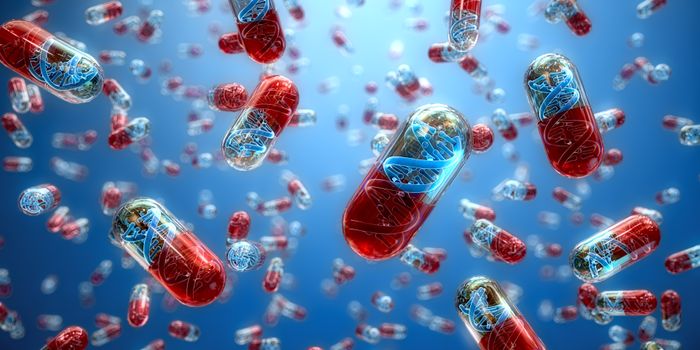New Biomarkers Diagnose Neurodegenerative Diseases or Predict Likely Alzheimer's Patients
The accumulation of incorrectly folded proteins can lead to many physiological problems. Many neurodegenerative diseases have been linked to misfolded protein clumps, such as Alzheimer's, Parkinson's, and synucleinopathies, which are a group of diseases in which a protein called alpha-synuclein builds up. A new study has described an assay in which the so-called seeds of incorrectly folded alpha-synuclein clumps can be detected in patient serum, and used to diagnose various neurodegenerative diseases. The work has been reported in Nature Medicine.
The potential use of alpha-synuclein as a diagnostic biomarker has been unclear, but this work has now shown that it is possible. The assay that was created is called immunoprecipitation-based real-time quaking-induced conversion (IP/RT-QuIC) and it utilizes antibodies to latch onto alpha-synuclein seeds and isolate them from serum.
This method can detect minuscule amounts of alpha-synuclein seeds in serum, in concentrations as small as 1000 picograms per milliliter. Once they can access the test, patients won't have to submit to providing cerebrospinal fluid for synuclein detection assays. The test can differentiate between healthy people and patients with Parkinson's, multiple system atrophy (MSA), dementia with Lewy bodies (DLB), and synucleinopathies, suggested corresponding study author Professor Nobutaka Hattori from Juntendo University Faculty of Medicine /RIKEN Center for Brain Science.
The structure of synuclein seeds vary depending on the type of synucleinopathy. In Parkinson's and DLB, there paired filaments on seeds, while in MSA there are twisted and straight filaments on seeds, for example.
Another recent Nature Medicine study has shown that a blood test can identify elderly people who are cognitively unimpaired, but will likely experience symptomatic Alzheimer's disease in the future. This work showed that these individuals have amyloid plaques and they also show signs of abnormal astrocyte reactivity or activation. People who are less likely to go on to develop Alzheimer's did not display these characteristics in combination. This work may help clinicians and researchers apply therapies to treat Alzheimer's sooner, and potentially prevent poor outcomes.
In this study, the researchers looked for glial fibrillary acidic protein (GFAP), a biomarker of astrocyte reactivity, and pathological tau in blood samples from volunteers in three different studies of cognitively unimpaired elderly people. Only people who had both amyloids and astrocyte reactivity also showed evidence of progressively developing neuropathology and indications of developing Alzheimer's symptoms.
Tangles of abnormal amyloid protein are considered a hallmark of Alzheimer's disease and many researchers have thought they are a direct cause of the disorder. There is debate, however, because work has also shown that other factors such as abnormal tau protein or brain inflammation may play a significant role in the disorder. Not everyone with amyloid plaques develops Alzheimer's, either.
"Our study argues that testing for the presence of brain amyloid along with blood biomarkers of astrocyte reactivity is the optimal screening to identify patients who are most at risk for progressing to Alzheimer's disease," explained senior study author Tharick Pascoal, MD, PhD, an associate professor of psychiatry and neurology at Pitt. "This puts astrocytes at the center as key regulators of disease progression, challenging the notion that amyloid is enough to trigger Alzheimer's disease."
Astrocytes were long thought of as supporting players to neurons, but research has found that astrocytes have other crucial roles in the brain as well.
"Astrocytes coordinate brain amyloid and tau relationship like a conductor directing the orchestra," said lead study author Bruna Bellaver, PhD, a postdoctoral researcher at Pitt. "This can be a game-changer to the field, since glial biomarkers in general are not considered in any main disease model."
Sources: Juntendo University Research Promotion Center, University of Pittsburgh, Bellaver et al Nature Medicine 2023, Okuzumi et al Nature Medicine 2023
-
MAY 07, 2024Is It Anti-RNP or Anti-Sm/RNP?
- See More
-
APR 30, 2024Immuno-Oncology Virtual Event Series 2024
-
MAY 07, 20243rd International Biosecurity Virtual Symposium
-
JUN 06, 2024The Future of Scientific Conferencing
- See More


















































